Exploring the principles of Japanese parenting style can provide intriguing insights into child-rearing practices that foster independence, resilience, and respect.
Diving straight into the heart of the matter, Japanese parenting style, often termed as ‘amae,’ is a unique approach that fosters independence, resilience, and respect in children.
This approach focuses on the strong bond between parents and children, emphasizing emotional security and group harmony.
While it might seem different from Western parenting styles, it offers a plethora of benefits that contribute to the overall development of a child.
This article will venture into the depths of this parenting style, providing a comprehensive understanding of its principles, benefits, and how it can be incorporated into everyday parenting practices.
Let’s unravel the secrets of Japanese parenting that help raise such well-disciplined, responsible, and respectful children.
Key takeaways:
- Japanese parenting emphasizes independence, resilience, and respect.
- Strong bond between parents and children, emphasizing emotional security.
- Japanese society values group harmony and societal norms.
- Discipline focuses on teaching societal norms and personal responsibility.
- Education is highly valued, emphasizing academic achievement and character-building.
Here You Will Learn:
Understanding Japanese Parenting
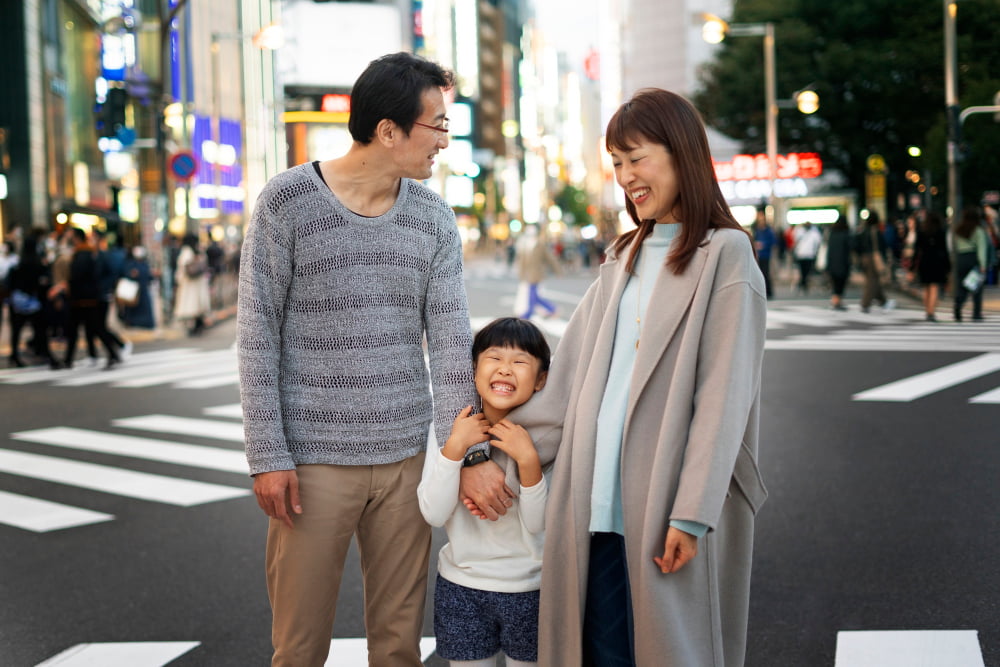
In Japan, it is common for parents and children to form an interdependent relationship, a concept known as ‘amae.’ This unique relationship is hinged upon a child’s complete trust and reliance on their parents, balanced by an obligation to live up to parental expectations – a factor that instills a sense of responsibility.
A crucial aspect of Japanese child-rearing practices is the strong emphasis on mutual respect and the adoption of societal norms. Parents gently guide their children’s behavior, instilling important values like respect for elders, humility, and understanding of societal customs. Yet, they allow room for children to express themselves and learn from their experiences, creating a balance between fostering individualism and aligning with societal norms.
This thoughtful approach molds a child’s character, prepares them to face challenges, and ensures harmonious integration into society, which is the cornerstone of Japanese culture.
Japanese Parenting Culture
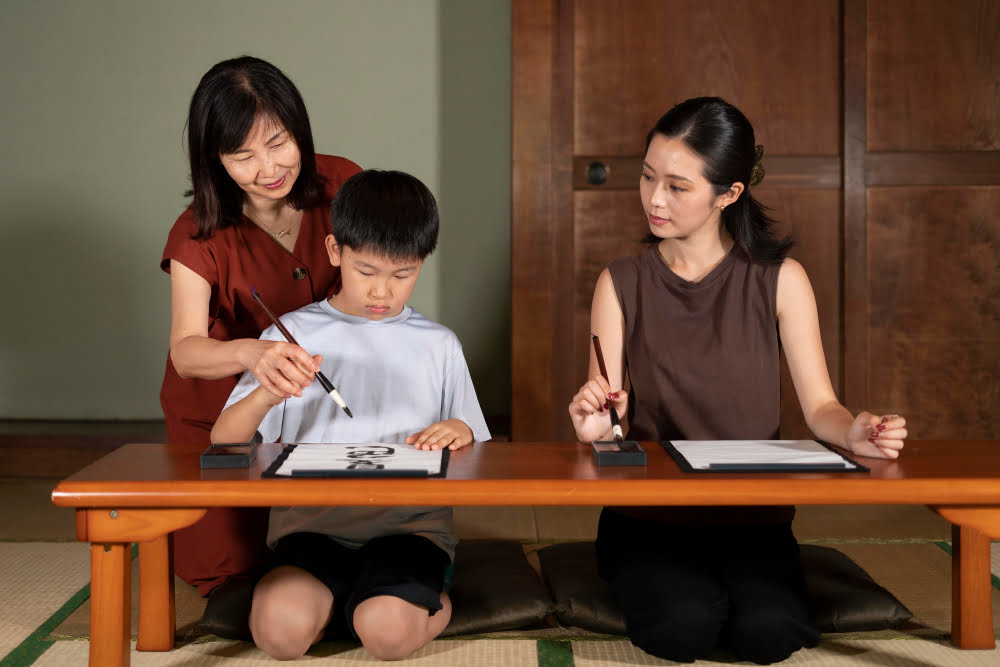
In contrast to individualist cultures, Japanese society places a high value on group harmony, imposing a sense of responsibility and duty from a young age. Parents teach their children to consider the group’s welfare above their own desires and needs. This mindset trickles into every aspect of a child’s development including both social behavior and educational learning.
Respect for elders is another cornerstone in a child’s upbringing, cultivated in day-to-day interactions. Filial piety isn’t just a saying, but a way of life, leading to a strong, symbiotic family structure that fosters emotional security.
Moreover, the concept of ‘amae’ – an inherent, unspoken trust and dependence on one’s parents, is central to their culture. It’s considered crucial for the emotional development of children, enabling them to grow into secure, well-adjusted adults.
Rounding off, the lack of overt praise is another characteristic hallmark. Parents believe in fostering a child’s inner motivation rather than relying on extrinsic rewards, subtly promoting self-discipline and autonomous growth. However, it’s important to note that these practices may vary among families, influenced by individual beliefs and evolving societal norms.
The Role of Discipline in Japanese Families
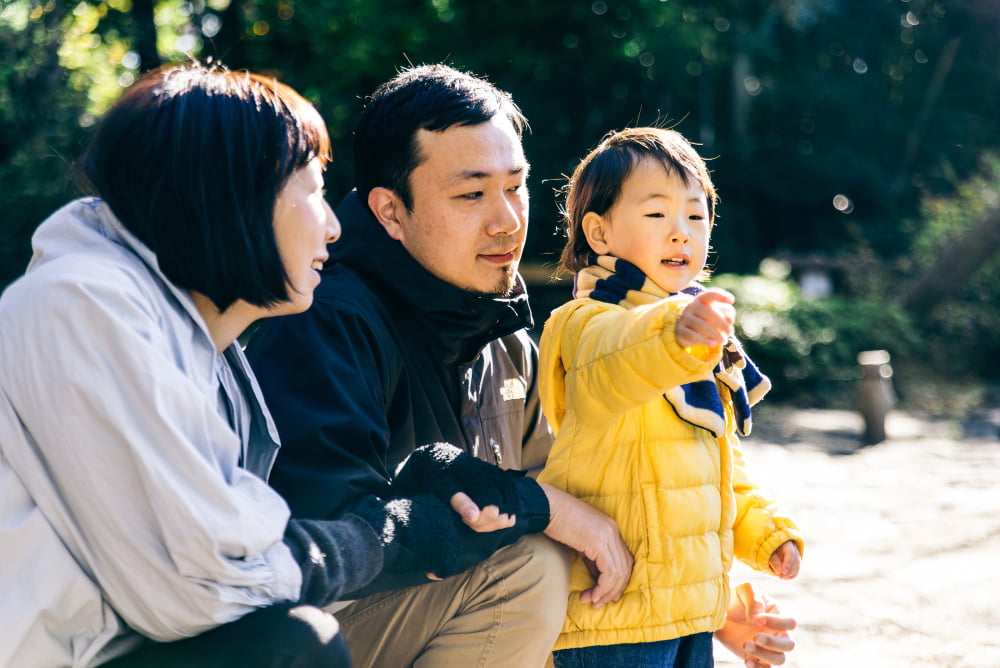
Discipline is one of the critical tenets that Japanese families hold dear. There is an emphasis on teaching children about societal norms from an early age.
Students learn more through observation and initial guidance than through frequent direct intervention. This method steers children towards becoming independent thinkers who abide by society’s rules not due to fear of punishment, but because of a firm understanding of their importance.
Gentle but firm guidance is the preferred approach, allowing children to understand the consequences of their actions and the value of personal responsibility.
Parents teach children to reflect on their actions and understand how their behaviors can impact others. This awareness fosters empathy, another crucial pillar in Japanese family structures.
Education and Learning: A Japanese Perspective
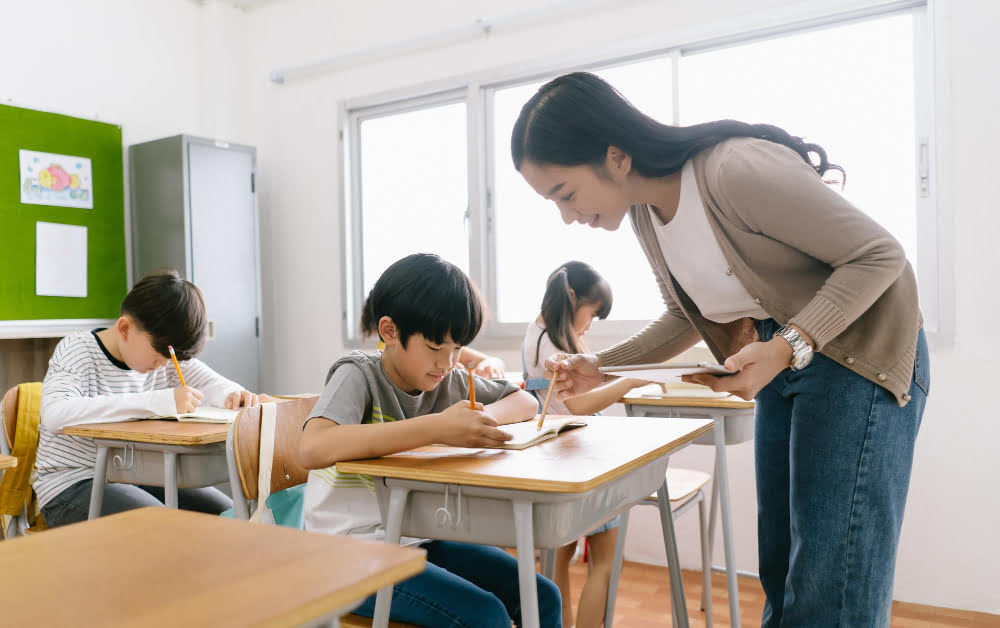
Parents in Japan hold a firm belief that education serves as the foundation for a prosperous life. They instill in their children the importance of diligent study, aiming to cultivate not just academic prowess, but lifelong learning habits.
The focus is on ‘juku,’ or cram school, which most children attend outside of regular school hours for additional study. The purpose is not only to perform better in exams but to foster a robust work ethic.
A key aspect of Japanese education is the incorporation of character-building lessons into the regular curriculum. These lessons, often centered around ‘moral education,’ emphasize respect for others, self-restraint, and a sense of social obligation, values that collectively exemplify the spirit of Japanese society.
Furthermore, it’s common for Japanese kids to not receive any formal academic instruction until the age of six. Instead, the early years are dedicated to developing social and emotional skills. This unique approach to early childhood education has been linked to lower rates of childhood anxiety and higher levels of self-motivation in Japanese children.
Encouraging Independence in Japanese Children

One landmark aspect of this approach is empowering children through measured freedom. From an early age, children are expected to handle certain tasks individually, such as commuting to school or housework duties.
This easy, gentle push towards autonomy extends to problem-solving as well, where youngsters are encouraged to find their solutions without immediate intervention from adults.
A critical balance of support and liberty helps children thrive outside their comfort zone, building both self-sufficiency and resilience.
These succinct habits lay a robust foundation for growing capable, confident, and independent individuals.
The Group-Oriented Nature of Japanese Parenting
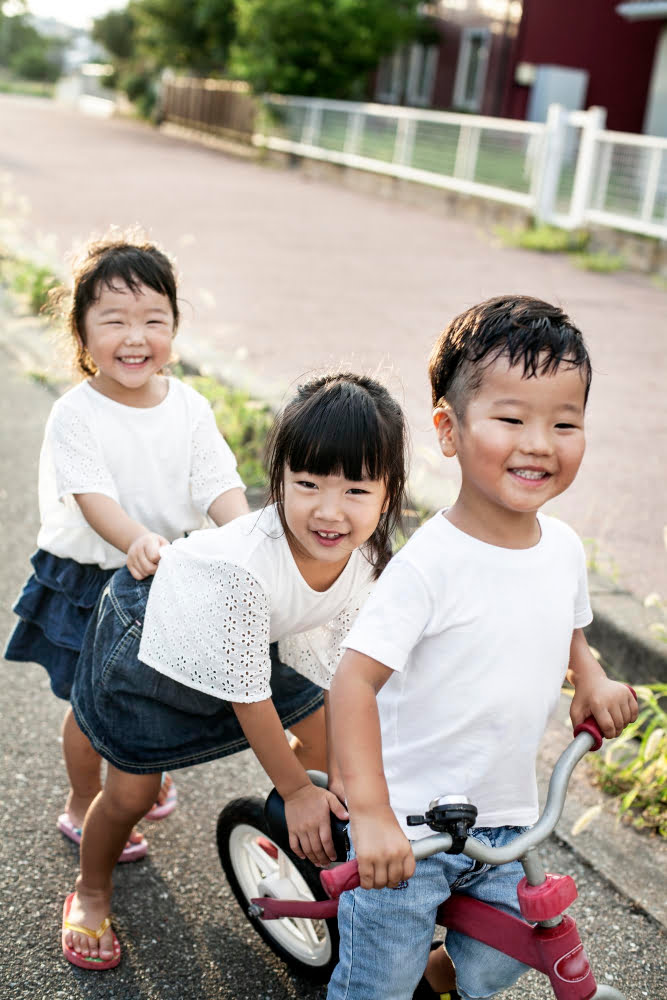
In Japan, a sense of community is deeply ingrained in daily life and extends into their child-rearing practices. This is particularly noticeable in the way children are encouraged to consider group harmony over individual desires or demands. Starting at an early age, children are taught to be considerate and aware of others’ feelings and needs.
Rather than focusing on the achievement of personal goals, emphasis is put on group projects and team activities, fostering a feeling of unity and cooperation. Sharing and behaving politely are heavily rewarded, reinforcing these societal norms further.
Through this approach, children grow up recognizing the importance of working harmoniously within a group and respecting others — valuable skills in any walk of life.
The Influence of Cultural Traditions On Parenting Practices

Japanese cultural traditions foster a community-oriented spirit, revering elders and valuing harmony. These principles are deeply ingrained in parenting practices, cultivating respect and cooperation in children.
This communal approach focuses on group dynamics over individual desires, thus, instilling a strong sense of duty and responsibility from a young age.
Consider the common practice of “osouji” or “big cleaning,” where children actively participate in school cleaning duties. Such rituals are not merely about hygiene; they aim to develop discipline, teamwork, and appreciation for shared spaces.
Hence, Japanese culture subtly integrates vital life lessons in everyday routines, shaping well-rounded individuals ready to contribute positively to society.
FAQ
How do Japanese parents discipline their child?
Japanese parents typically discipline their children by having them clean up their own mistakes, such as spilling food or dirtying the floor, as a means of understanding their actions and preventing recurrence.
What is the Japanese philosophy on parenting?
The Japanese philosophy on parenting centers around teaching children servitude and altruism, where their personal interests are delayed during their prime years to instill fundamental societal values and a sense of equality.
Do Japanese parents show affection?
Japanese parents do show affection but they primarily express it through actions and non-verbal cues, rather than directly saying “I love you.
What are the 4 styles parenting?
The four predominant styles of parenting include permissive, authoritative, neglectful, and authoritarian.
How is the concept of “amae” integrated into Japanese parenting?
The concept of “amae”, which refers to a child’s dependence and presumption of parental love, is fundamental to Japanese parenting as it fosters emotional bonding and mutual understanding between parent and child.
What is the role of education in Japanese parenting?
In Japanese parenting, education is considered a top priority with a high degree of emphasis placed on academic achievement, cultural education, and discipline.
How do Japanese parents encourage independence in their children?
Japanese parents encourage independence in their children by allowing them to take ‘first errands’ alone, like going to the nearby store to purchase something, as early as age 6.